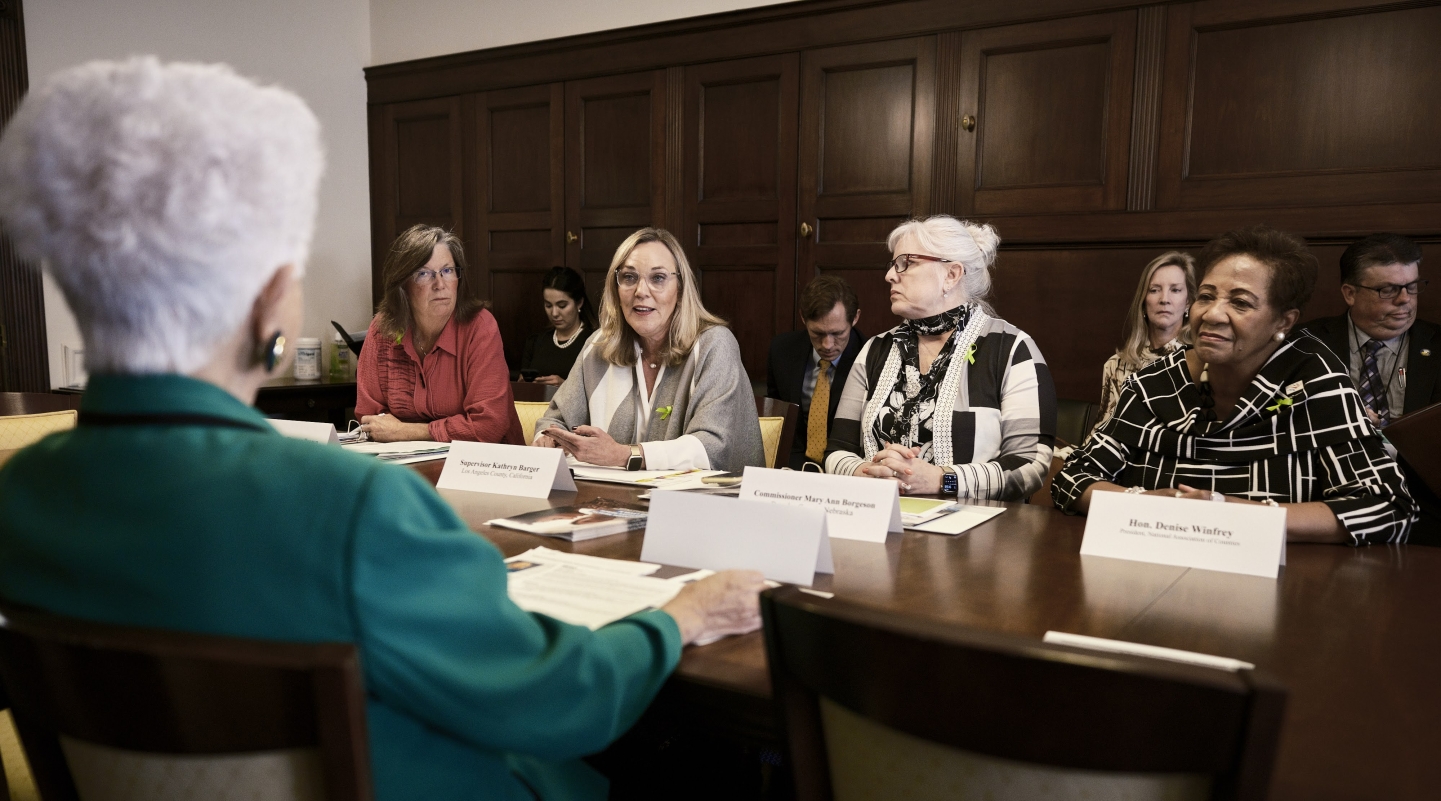County Countdown – June 17, 2025
Upcoming Events
Related News

Every other week, NACo's County Countdown reviews top federal policy advocacy items with an eye towards counties and the intergovernmental partnership.
In this special edition, NACo has compiled resources – from analysis to toolkits – related to pressing issues in three key areas: budget reconciliation, executive actions and federal appropriations for fiscal year 2026.
Budget Reconciliation
Last month, the U.S. House passed the One Big Beautiful Bill Act (H.R. 1). The legislation now moves to the Senate, where changes to the text are anticipated.
NACo continues to closely monitor the budget reconciliation process, with a focus on key county priorities – including health care, social safety net programs, immigration policy, and the extension of provisions from the 2017 Tax Cuts and Jobs Act. Below are key resources and updates on these critical issues.
Budget Reconciliation Bill
- U.S. House passes reconciliation bill: What it means for counties | Advocacy Update
- U.S. Congress begins work on budget reconciliation process | Advocacy Update
Supplemental Nutrition Assistance Program
Medicaid
Tax Policy
- Counties and Tax Reform in 119th Congress | Toolkit
- Municipal Bond Advocacy Toolkit | Toolkit
- NACo releases new state and local tax (SALT) deduction data for 2022 showing why relief is necessary | Advocacy Update
Secure Rural Schools (SRS) Reauthorization/Payments in Lieu of Taxes (PILT)
- Support continued revenue sharing payments to National Forest counties | Policy Brief
- Sen. Wyden pleads for 'noise' on Secure Rural Schools renewal | County News Article
- U.S. Senate passes Secure Rural Schools reauthorization | Advocacy Update
- Provide Full Mandatory Funding for the PILT Program | Policy Brief
- Department of the Interior announces PILT funding total of over $621 million will be distributed to counties | Advocacy Update
Executive Actions
During the first few months of his second term, President Trump has issued a record number of executive orders, surpassing those of any previous president over the same time period.
NACo is closely monitoring these actions to assess their implications for counties. Read below for key updates and analysis.
Sanctuary Jurisdictions
- DHS releases list identifying sanctuary jurisdictions; Includes nearly 400 counties | Advocacy Update
- Impacts of immigration executive orders on local governments | FAQ/Webinar Resource
- Local government legal center immigration webinar | Webinar Slide Deck
Federal Funding Freezes
- Federal Funding Freeze Tracker | Tracker
FEMA Reform
- House draft bill text proposes FEMA reform package with major wins for counties | Advocacy Update
- NACo Intergovernmental Reform Task Force | Task Force
Broadband/Broadband Equity, Access, and Deployment (BEAD) Program
- NTIA releases new guidance on BEAD program funding rules | Advocacy Update
- NTIA terminates Digital Equity Act grants | Advocacy Update
Federal Appropriations
In parallel with the budget reconciliation process (which applies to mandatory spending and revenue) Congress is undertaking its annual appropriations process for discretionary spending, which began with the president's budget request.
NACo is tracking proposed increases, cuts and eliminations around key federal programs important to counties and advocating for the inclusion of county priorities in appropriations bills.
Fiscal Year (FY) 2026 Budget
- Analysis of the FY 2026 President's Budget | Analysis
Related News

County Countdown – Dec. 15, 2025
Every other week, NACo's County Countdown reviews top federal policy advocacy items with an eye towards counties and the intergovernmental partnership.

County Countdown – Dec. 1, 2025
Every other week, NACo's County Countdown reviews top federal policy advocacy items with an eye towards counties and the intergovernmental partnership.

Counties Celebrate Key Permitting Inclusions in SPEED Act
NACo issued the following statement in response to the passage of the Standardizing Permitting and Expediting Economic Development (SPEED) Act (H.R. 4776), which advanced out of the U.S. House Committee on Natural Resources on November 20.
Upcoming Events

Modern Networks, Smarter Budgets: A County Leader's Perspective
Join us for a fireside chat with Orleans County, NY, as they share how their team successfully transitioned from a traditional capital expense (CapEx) model to an operational expense (OpEx) model for network services.
When faced with rising maintenance costs and an expiring carrier contract, the county seized the opportunity to modernize its network and lock in predictable monthly costs. By bundling connectivity services with unified communications, they achieved immediate savings of over $124,000, eliminated recurring charges such as long-distance fees and third-party integration costs, and gained access to operational upgrades like call analytics and auto-attendants.
This shift not only strengthened financial planning through fixed monthly expenses but also freed up IT staff to focus on strategic initiatives.
Key takeaway: Rethinking your budget model can be just as impactful as upgrading your technology — delivering fiscal stability and enhanced services for your community.

Advocacy 101 for Counties: Maximizing Your Impact During the NACo Legislative Conference
Learn how to prepare for Hill meetings, effectively advocate for NACo priorities, and translate county experiences into clear federal policy asks.

What to Know Before You Go to NACo’s Legislative Conference
Join NACo’s Membership Chair and staff to learn ways to maximize your experience at the NACo Legislative Conference.
